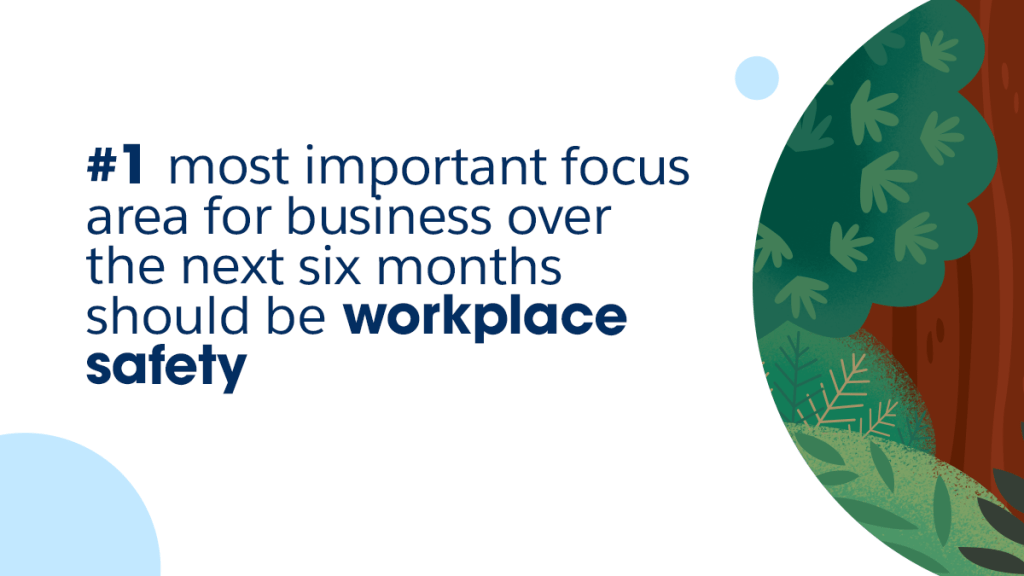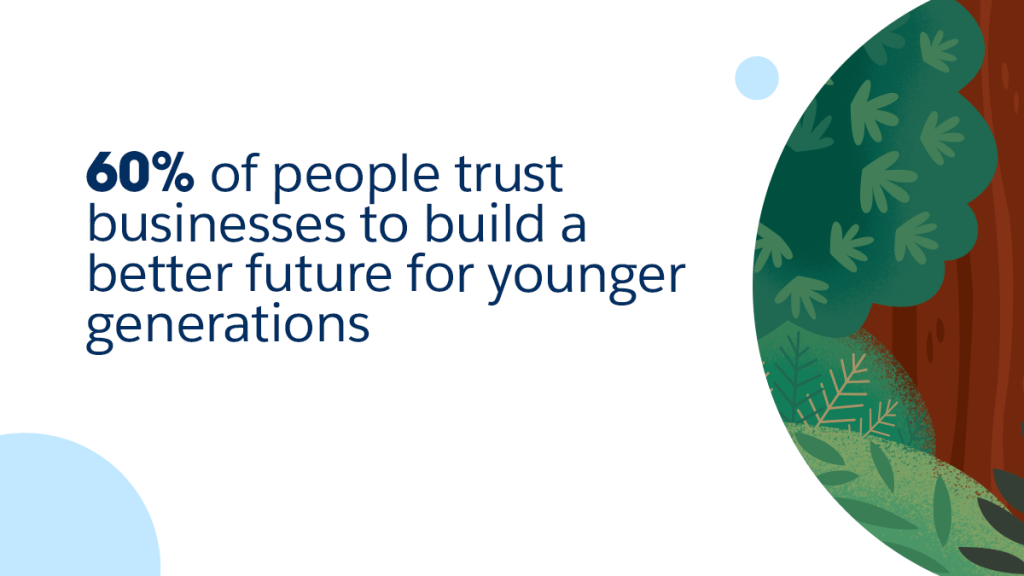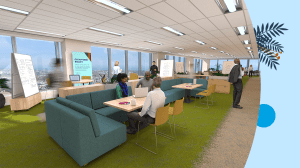During a career spanning 50 years, I have never seen greater uncertainty than we are seeing right now. We’re experiencing a health crisis, an economic crisis, a social and even a political crisis, all in parallel. It may be true that the short-term uncertainty is even greater than the long-term. What is clear is that the solutions we develop for our customers and stakeholders today must outlive the challenges we will face over the next six to nine months.
Martin Wolf, Economics Editor of the Financial Times said, “In war, governments spend freely.” Amidst the worst global recession we have ever experienced, the scale of its impact certainly gives this situation a war-time feeling. According to Salesforce’s Global Stakeholder Series: Future of Work, Now research from 20,000 people across ten countries, the sense of urgency to build more resilient businesses, to re-skill communities for the digital jobs of the future, and to tackle inequalities is clear.
What makes this moment unique is that the challenges we face are impacting everybody everywhere almost simultaneously. How we keep our employees safe, help our businesses recover and return to growth, and design a better future will define our collective response to this crisis. Just as governments need to come together, to think big and act now to prevent disaster, so must companies play a role. With one eye on the present and another to the future, here are three fundamental questions they must ask when considering the future of work.
1. How do we keep employees safe?
As questions persist around the dynamics of COVID-19 and our resources to deal with the public health crisis, it’s not surprising that the number one priority among survey respondents is safety at work. Whilst we cannot know when, or indeed if, a vaccine will be made available businesses can take steps to prioritize the health and wellbeing of their employees as they reopen.
With technology, business leaders can ensure the safe return of employees to physical workspace through, for instance, contact tracing and Emergency Response Management. With empathy, they can set up programs to meet employees’ mental health needs – ranked the second most important focus area for businesses. Also at this time, companies must support their workforce to the adapt to the ‘wherever and whenever’ world we now live in. Increasingly, levels of productivity and customer service standards will depend upon their teams’ ability to adapt and collaborate remotely.
2. How do we help companies recover and prepare for the jobs of tomorrow?
Time will tell whether the economic measures that governments are taking in response to the pandemic are effective and what further support economies will need. What is clear is the need, and expectation, for companies to come out of this crisis more resilient than they entered it. In the context of the Fourth Industrial Revolution and a global pandemic, this doesn’t only mean digitally transforming their business models. It requires preparing their workforce for the future of work, now.
We’re not just facing a skills gap, we’re facing a jobs crisis. COVID-19 has created the need for a workforce that’s prepared to navigate an all-digital future. As the digital economy evolves rapidly over the next six months, skills like coding and web development are going to be crucial to helping businesses to recover and grow. Fortunately, just as the demand for new skills exists so does the enthusiasm among the workforce to learn. According to our survey, 65% say they wish they had access to free technical training. Increasingly, business and societal success will be determined by companies’ capability to build an inclusive future through workforce development.
3. How do we build a better, more equal society?
Income inequality, racial disparity, climate change, education inequality. All these issues were at the forefront prior to COVID-19. Over recent months, global events have only escalated social and political tensions. This moment, however, presents a chance to reset how we view the role of business in society.
From our survey the expectation that companies can and should be a platform for positive change is clear. 61% say businesses should make closing global inequalities a high priority. 64% and 52%, respectively, say it’s critical that their work helps the planet and their employer gives back to their community. When it comes to education, 60% of people trust businesses to build a better future for younger generations. Like other areas of society that have witnessed widening digital divides, technology and stewardship can help us design a better future than we had before.
Amidst this wicked brew of health, economic, social and leadership crises, the interplay of these uncertainties will determine when and how countries and businesses reach a next normal. As our survey results show, the war-time sense of urgency is clear. As we lean into uncertainty, in addition to building more resilient businesses, we must use this unique opportunity to learn from this pandemic and intentionally design a better future.
Learn more about the Global Stakeholder Series: Future of Work, Now research here.




















